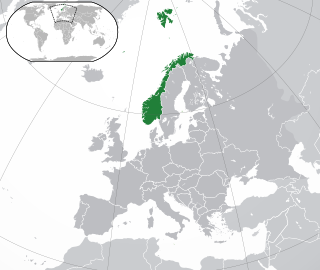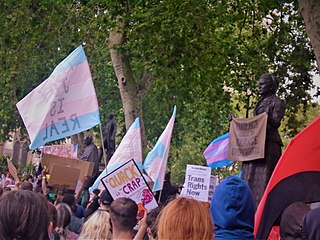
Transphobia consists of negative attitudes, feelings, or actions towards transgender people or transness in general. Transphobia can include fear, aversion, hatred, violence or anger towards people who do not conform to social gender roles. Transphobia is a type of prejudice and discrimination, similar to racism, sexism, or ableism, and it is closely associated with homophobia. People of color who are transgender experience discrimination above and beyond that which can be explained as a simple combination of transphobia and racism.

Biphobia is aversion toward bisexuality or people who are identified or perceived as being bisexual. Similarly to homophobia, it refers to hatred and prejudice specifically against those identified or perceived as being in the bisexual community. It can take the form of denial that bisexuality is a genuine sexual orientation, or of negative stereotypes about people who are bisexual. Other forms of biphobia include bisexual erasure.

Violence against transgender people includes emotional, physical, sexual, or verbal violence targeted towards transgender people. The term has also been applied to hate speech directed at transgender people and at depictions of transgender people in the media that reinforce negative stereotypes about them. Trans and non-binary gender adolescents can experience bashing in the form of bullying and harassment. When compared to their cisgender peers, trans and non-binary gender youth are at increased risk for victimisation, which has been shown to increase their risk of substance abuse.

ILGA-Europe is the European region of the International Lesbian, Gay, Bisexual, Trans and Intersex Association. It is an advocacy group promoting the interests of lesbian, gay, bisexual, trans and intersex (LGBTI) people, at the European level. Its membership comprises more than 500 organisations from throughout Europe and Central Asia. The association enjoys consultative status at the United Nations Economic and Social Council and participatory status at the Council of Europe.

Lesbian, gay, bisexual, and transgender (LGBTQ) people in Norway have the same legal rights as non-LGBT people. In 1981, Norway became one of the first countries in the world to enact an anti-discrimination law explicitly including sexual orientation. Same-sex marriage, adoption, and assisted insemination treatments for lesbian couples have been legal since 2009. In 2016, Norway became the fourth country in Europe to pass a law allowing the change of legal sex for transgender people based on self-determination. On 1 January 2024, conversion therapy became legally banned within Norway.

Christine Burns is a British political activist best known for her work with Press for Change and, more recently, as an internationally recognised health adviser. Burns was awarded an MBE in 2005 in recognition of her work representing transgender people. In 2011, she ranked 35th on The Independent on Sunday's annual Pink List of influential lesbian, gay, bisexual, and transgender people in the United Kingdom.

A transgender person is someone whose gender identity differs from that typically associated with the sex they were assigned at birth. Some transgender people who desire medical assistance to transition from one sex to another identify as transsexual. Transgender is also an umbrella term; in addition to including people whose gender identity differs from the gender typically associated with their assigned sex at birth, it may also include people who are non-binary or genderqueer. Other definitions of transgender also include people who belong to a third gender, or else conceptualize transgender people as a third gender. The term may also include cross-dressers or drag kings and drag queens in some contexts. The term transgender does not have a universally accepted definition, including among researchers.
Various issues in medicine relate to lesbian, gay, bisexual, and transgender people. According to the US Gay and Lesbian Medical Association (GLMA), besides HIV/AIDS, issues related to LGBT health include breast and cervical cancer, hepatitis, mental health, substance use disorders, alcohol use, tobacco use, depression, access to care for transgender persons, issues surrounding marriage and family recognition, conversion therapy, refusal clause legislation, and laws that are intended to "immunize health care professionals from liability for discriminating against persons of whom they disapprove."

Transgender Europe (TGEU) is a network of different organisations working to combat discrimination against trans people and support trans people rights. It was founded in 2005 in Vienna during the 1st European Transgender Council as "European Transgender Network" and it is currently a registered NGO as "Transgender Europe".

Transmisogyny, otherwise known as trans-misogyny and transphobic misogyny, is the intersection of transphobia and misogyny as experienced by trans women and transfeminine people. The term was coined by Julia Serano in her 2007 book Whipping Girl to describe a particular form of oppression experienced by trans women. In a 2017 interview with The New York Times, Serano explores the roots of transmisogyny as a critique of feminine gender expressions which are "ridiculed in comparison to masculine interests and gender expression."
Transgender disenfranchisement is the prevention by bureaucratic, institutional and social barriers, of transgender individuals from voting or participating in other aspects of civic life. Transgender people may be disenfranchised if the sex indicated on their identification documents does not match their gender presentation, and they may be unable to update necessary identity documents because some governments require individuals to undergo sex reassignment surgery first, which many cannot afford, are not medical candidates for, or do not want.
Discrimination against non-binary people, people who do not identify exclusively as male or female, may occur in social, legal, or medical contexts.
Feminist views on transgender topics vary widely.
Transgender inequality is the unequal protection received by transgender people in work, school, and society in general. Transgender people regularly face transphobic harassment. Ultimately, one of the largest reasons that transgender people face inequality is due to a lack of public understanding of transgender people.

The following outline offers an overview and guide to LGBTQ topics:

Transgender rights in the United Kingdom have varied significantly over time.
Education sector responses to LGBT violence addresses the ways in which education systems work to create safe learning environments for LGBT students. Overall, education sector responses tend to focus on homophobia and violence linked to sexual orientation and gender identity/expression, and less on transphobia. Most responses focus in some way on diverse expressions of gender and support students to understand that gender may be expressed in a different way from binary models. Responses vary greatly in their scope ; duration ; and level of support that they enjoy.
The LGB Alliance is a British advocacy group and registered charity founded in 2019 in opposition to the policies of LGBT rights charity Stonewall on transgender issues. Its founders are Bev Jackson, Kate Harris, Allison Bailey, Malcolm Clark and Ann Sinnott. The LGB Alliance describes its objective as "asserting the right of lesbians, bisexuals and gay men to define themselves as same-sex attracted", and states that such a right is threatened by "attempts to introduce confusion between biological sex and the notion of gender". The group has opposed a ban on conversion therapy that includes trans people in the UK, opposed the use of puberty blockers for children, and opposed gender recognition reform.












